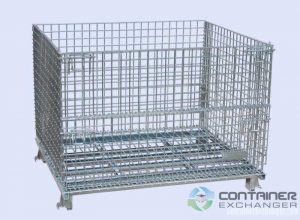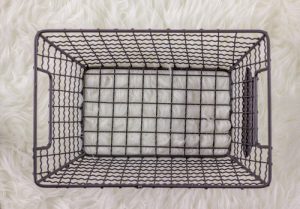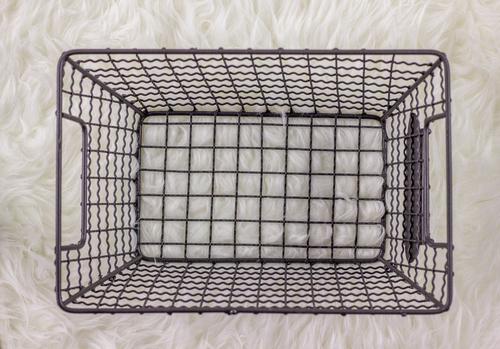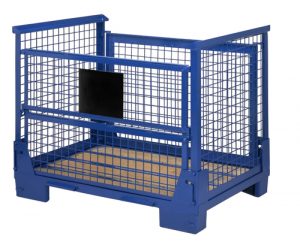Some materials are more popular than others for packaging products safely. As a business owner, you need to be able to decide what kind of packaging is best for your company. Metal is known for its durability and, as such, it’s often a great option for packaging. However, it’s not necessarily the best choice across the board. There are some drawbacks to metal packaging, so look at your options before you commit.
Depending on the industry you work in and the products you carry, metal packaging could be exactly what you need. On the other hand, there are other options to explore. Read ahead and see if metal packaging is right for your business by learning about the benefits and drawbacks.
- PRO: Sturdy Storage—One of the undeniable benefits of metal is its durability. When you ship fragile products over a long distance, you should take every possible precaution to make sure they stay intact throughout transit. Metal bins can take a beating, so your inventory doesn’t have to. As long as you package everything correctly, you can expect the products to arrive at their destination safely and securely. This is an easy way to cut down on shrinkage and ensure that everything you send out is in top shape when it shows up in front of customers.
- PRO and CON: Environmental and Economic Impact—The environmental impact of metal packaging is tricky to analyze. On one hand, metal can be recycled, repurposed and turned into new products, and they last for a significant amount of time. On the other hand, the responsibility is on businesses and consumers to make sure old steel bins and wire baskets actually make it into the recycling bin. A great deal of used metal still goes to landfills, even though there are so many ways to recycle metal products. If you’re going to use metal packaging, make sure you dispose of it properly when you’re done.
- PRO: Variety of Options—Metal packaging comes in all shapes, sizes and configurations, so no matter what your needs are, it should be easy enough to find an appropriate container. You might need wire baskets, steel tubs or even metal pallets for different types of products. Metal makes up everything from shopping carts to industrial bins, and it offers many of the same benefits no matter how the packaging is configured.
- PRO: Collapsible – Tight on warehouse space? No problem! A great positive to metal containers is that they easily collapse to save precious storage room. This is also applies to getting your unused containers from point A to point B. Collapsible containers make it easy for transport storage between distribution points.

- CON: Loose Packaging—Metal packaging is great in some circumstances, but it’s not so applicable in others. Wire baskets are gridlike and they’re not fully enclosed. That means small, loose products may slip through the bottom or sides of the basket. If you need to transport seeds, for example, this would not be the way to do it, as you’d lose your product.
- CON: Corrosion—Another unfortunate attribute of metal is that it’s susceptible to corrosion. It’s never a good idea to let your valuable inventory come in contact with rust, especially if you deal with edible products. If you decide that metal packaging is the way to go, be extra careful to keep your bins and baskets away from moisture. Check on your packaging materials regularly to make sure they’re still free of rust and corrosion before you ship anything to your distributors.
- PRO and CON: Visibility—Visibility is another factor that falls on the line between pro and con. You can always see what you have in a wire basket, which is convenient for customers who are shopping in your store. You can’t see through solid steel tubs, however, so you won’t be able to tell what’s inside one unless you dig through the contents or attach a list to the packaging.

Like most types of packaging materials, metal might be the perfect option or the worst alternative for storing and shipping your products. The key is learning about the advantages and disadvantages and comparing the many different types of metal packaging solutions to the products and needs of your business. It’s important to be cognizant of how you use—and dispose of—your metal packaging for the sake of the environment and pick the right type of packaging for the job.

